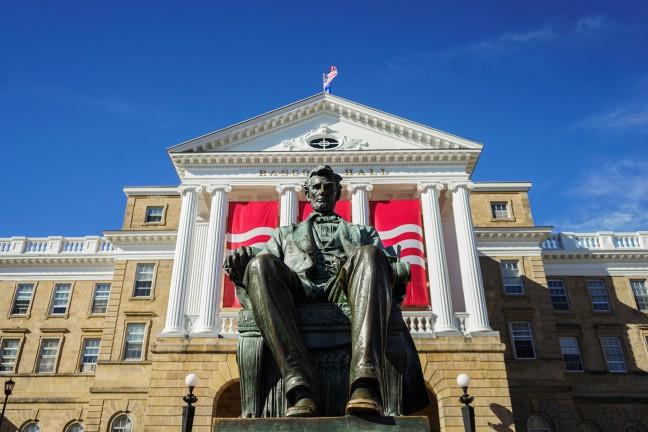University of Wisconsin Faculty Senate proposed a $4,000 increase in out-of-state tuition to meet rising operation costs and cushion the impact of budget cuts Monday.
The increase is part of a four-year plan from UW Chancellor Rebecca Blank to raise tuition for nonresident undergraduates and some professional school students. UW System Board of Regents only approved a two-year plan and decided to deliberate on the remaining two years at a later date. Blank pushed proposals for the remaining two years in the Faculty Senate meeting Monday.
The Board of Regents will vote on the proposal at their meeting Thursday.
“We don’t make a decision to increase tuition lightly,” Blank wrote in a blog post. “We have a responsibility to maintain access to UW-Madison for Wisconsin students and to maintain lower tuition for our in-state students.”
The plan will also raise tuition for both in and out-of-state students in some professional programs. According the statement from Blank, tuition will increase by at least 10 percent for most programs, including a nearly $10,000 increase over two years for all students in the UW School of Business’ Global Real Estate Masters program.
Tuition for students in UW Law School, School of Medicine and Public Health, School of Nursing, School of Pharmacy and School of Veterinary Medicine is also expected to rise.
Blank said UW’s operation costs are rising while state aid is decreasing. Cuts in the 2015-17 budget left the university with a $86 million deficit, which was filled with some increases in nonresident and professional school tuition. The current proposal will provide $9.6 million in additional funding, which will help expand programs and meet needs across campus, she said.
“The new revenue is very important as a way to address substantial needs across campus, and all of the new dollars will be put back into support that aids the student experience,” Blank said.
Blank said she does not expect the proposed increase in nonresident tuition will turn away students. The number of nonresident applicants increased from 11,284 in 2006 to 21,664 in 2016. Blank predicts applications will continue to come in increasing numbers as UW moves to the Common Application platform.


